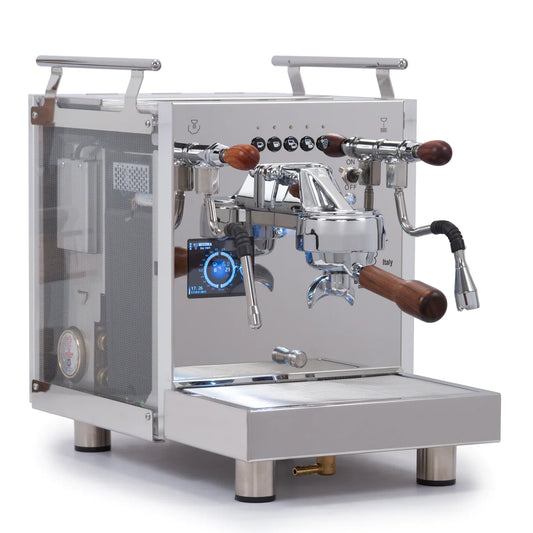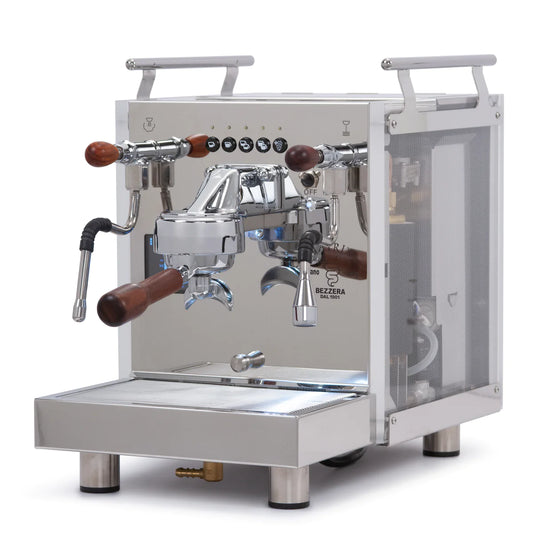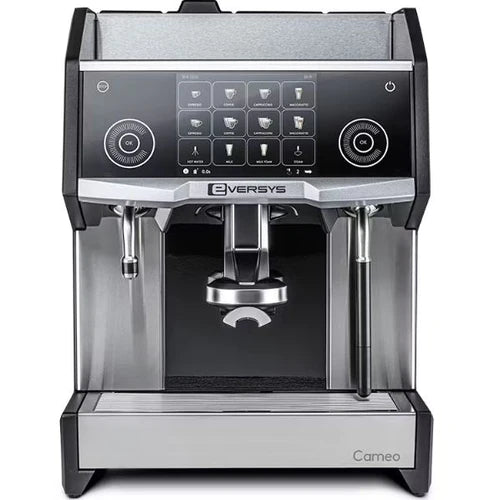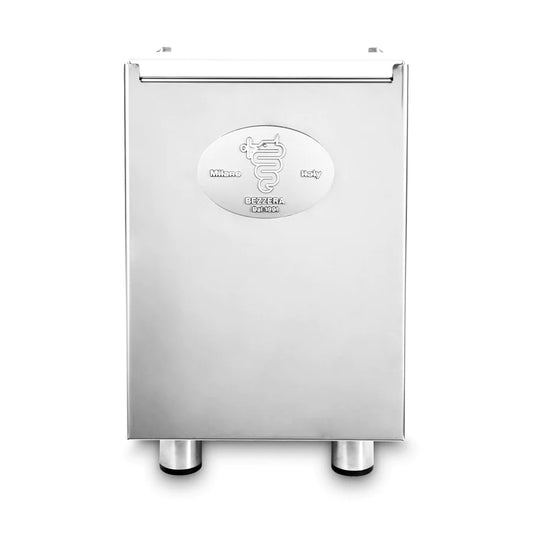Revolutionizing Business Analytics: The Role of AI Agents in Data-Driven Workflows
Table of Contents
- Key Highlights:
- Introduction
- The Rise of AI Agents in Business Analytics
- Real Applications of AI Agents in Business Analytics
- How Bayeslab Technically Enables These Scenarios
- Enterprise Integration & Output Capabilities
- Industry Implications of AI Agents
- Conclusion
Key Highlights:
- AI agents are transforming data analysis by automating processes and enabling natural language interactions, making analytics more accessible.
- Practical applications, such as the Smart Coffee Machine Usage Analysis, showcase how AI agents streamline the entire analytical lifecycle, from data ingestion to actionable insights.
- Bayeslab’s technology allows for effortless integration into enterprise systems, enhancing data connectivity and report automation.
Introduction
In the age of big data, businesses are increasingly relying on advanced tools to make sense of vast amounts of information. Traditional business intelligence (BI) tools, while useful, often require significant manual effort and technical know-how to extract insights from complex datasets. Enter AI agents—intelligent systems designed to facilitate seamless interactions between users and data. These agents promise to redefine the landscape of business analytics, offering a more intuitive, rapid, and accessible approach to data exploration and decision-making.
The growing adoption of AI agents is not just a trend; it's a fundamental shift in how organizations leverage data for strategic advantage. By reducing the barriers between analysts and the data they work with, AI agents like Bayeslab empower users to derive insights with unprecedented speed and efficiency. This article explores the capabilities of AI agents, their real-world applications, and the technical framework that enables their operation.
The Rise of AI Agents in Business Analytics
AI agents have emerged as a critical component in modern analytics, bridging the gap between complex datasets and actionable insights. Unlike traditional BI tools, which often rely on predefined queries and static reports, AI agents enable a dynamic, prompt-driven interaction with data systems. This flexibility allows users to explore data in a more intuitive manner, facilitating quick decision-making and fostering a culture of data-driven inquiry.
Transforming Data Analysis Workflows
The analysis process traditionally follows a linear path: data is collected, cleaned, analyzed, and then presented. However, AI agents disrupt this model by introducing an iterative approach. They allow analysts to continuously refine their hypotheses and explore new questions as insights emerge. This adaptability is particularly beneficial in fast-paced business environments, where the ability to pivot based on real-time data can lead to competitive advantages.
Key Features of AI Agents
-
Natural Language Processing (NLP): AI agents utilize NLP to interpret user queries in everyday language, making data exploration accessible to non-technical users. This capability removes the need for SQL or programming knowledge, democratizing data analytics across organizations.
-
Automated Insight Generation: By leveraging machine learning algorithms, AI agents can identify patterns and anomalies in data without explicit user instructions. This automation not only saves time but also uncovers insights that users might overlook.
-
Contextual Understanding: AI agents can recognize the intent behind user prompts, allowing them to execute complex analytical tasks based on simple questions. This contextual understanding enhances the user experience, enabling more efficient data exploration.
Real Applications of AI Agents in Business Analytics
One of the most compelling aspects of AI agents is their ability to automate the full analytical lifecycle. A prime example is the Smart Coffee Machine Usage Analysis, where AI agents streamline operational assessments and behavioral evaluations through prompt-driven analytics.
Smart Coffee Machine Usage Analysis
This case study illustrates how Bayeslab can transition from raw operational data to impactful business insights with minimal manual intervention. The analytical process can be broken down into several key stages:
1. Data Exploration & Quality Assessment
The first step involves examining the data collected from the smart coffee machines. AI agents automatically assess data quality, detecting issues such as missing values or inconsistencies. This ensures that analysts work with reliable data, enhancing the accuracy of subsequent analyses.
2. User Behavior Analysis
Understanding user interactions with the coffee machine is crucial for improving the user experience. AI agents analyze usage patterns, identifying peak hours, preferred beverage types, and frequency of use. These insights help businesses tailor their offerings to meet customer preferences.
3. Device Performance Analysis
In addition to user behavior, AI agents monitor the performance of the coffee machines themselves. By analyzing operational metrics, such as brewing times and maintenance needs, businesses can proactively address issues, ensuring smooth operations and customer satisfaction.
4. Insights & Recommendations Report
Once the analysis is complete, AI agents generate comprehensive reports summarizing the findings. These reports include actionable recommendations, empowering decision-makers to implement changes that enhance user satisfaction and operational efficiency.
How Bayeslab Technically Enables These Scenarios
Bayeslab stands out in the realm of AI agents due to its robust technological framework that supports all stages of the analytical pipeline through natural language orchestration. This eliminates the need for users to switch between various tools or write complex code, streamlining the entire process.
Schema Inference & Data Profiling
Bayeslab's ability to automatically detect field types, distributions, and time-based structures is a significant advantage. This schema inference ensures that data is accurately represented, allowing analysts to focus on deriving insights rather than spending time on data preparation.
Insight Engine
The Insight Engine is a core feature that identifies patterns through techniques like clustering, time series analysis, and anomaly detection. By automating these processes, Bayeslab enables users to uncover insights without needing to select specific analytical methods.
Contextual Prompt Interpretation
Bayeslab excels in recognizing common analysis intents, such as comparisons or root cause analyses. This capability allows the system to execute complex tasks based on simple user inputs, enhancing the efficiency of data exploration.
Recommendation Framework
The integration of domain-specific rules, statistical modeling, and heuristics within Bayeslab's recommendation framework transforms insights into actionable suggestions. This feature ensures that decision-makers receive relevant and practical recommendations based on data.
Enterprise Integration & Output Capabilities
Beyond analytics, Bayeslab is designed for seamless integration into real-world enterprise systems, enhancing its value across organizations.
Data Connectivity
Bayeslab connects effortlessly to various data sources, including relational databases, spreadsheets, and RESTful APIs. This connectivity allows businesses to leverage existing data without the need for extensive migration efforts.
Dashboard Integration
The ability to publish insights directly into dashboards is a game-changer for organizations seeking to visualize data in real time. Bayeslab facilitates this process, ensuring that stakeholders have access to up-to-date information for informed decision-making.
Report Automation
Generating polished reports that combine text, charts, and executive summaries is crucial for effective communication of insights. Bayeslab automates this process, enabling businesses to produce professional-grade reports quickly and efficiently.
Industry Implications of AI Agents
The advent of AI agents like Bayeslab has significant implications across various industries, particularly those managing operational complexity.
Smart Appliances
In the realm of smart appliances, AI agents provide manufacturers with the tools to analyze product usage and performance data. This information can lead to improved product designs, enhanced customer experiences, and reduced operational costs.
Retail Analytics
Retailers can benefit from AI agents by analyzing customer behavior and inventory data. Insights generated by AI can inform pricing strategies, promotional campaigns, and inventory management, ultimately driving sales and customer satisfaction.
IoT Analytics
The explosion of Internet of Things (IoT) devices has created vast amounts of data. AI agents can help organizations manage this data effectively, providing insights that enhance operational efficiency and drive innovation.
Conclusion
AI agents are revolutionizing the way businesses interact with data, moving beyond traditional analytical approaches to create more adaptable and user-friendly workflows. By automating exploration, diagnosis, visualization, and reporting within natural language frameworks, these agents enable organizations to embed intelligence directly into daily decision-making processes.
For industries grappling with complexity—whether in smart appliances, retail, or IoT analytics—AI agents like Bayeslab offer scalable solutions that accelerate time to insight while maintaining analytical depth. The future of business analytics is not just about collecting more data; it's about making that data actionable and accessible to everyone in the organization.
FAQ
What are AI agents?
AI agents are intelligent systems that facilitate interactions between users and complex datasets, automating data exploration, analysis, and reporting processes.
How do AI agents improve data analysis?
By enabling natural language interactions, automating insight generation, and providing contextual understanding, AI agents make data analysis more accessible and efficient for users.
Can AI agents be integrated into existing enterprise systems?
Yes, AI agents like Bayeslab are designed for seamless integration with various data sources and enterprise systems, enhancing their functionality and utility.
What industries can benefit from AI agents?
Industries such as smart appliances, retail, and IoT analytics can leverage AI agents to gain insights from operational data, improve decision-making, and enhance customer experiences.
How do AI agents generate actionable insights?
AI agents use advanced algorithms to identify patterns and anomalies in data, providing recommendations based on these findings that businesses can implement for improvement.













